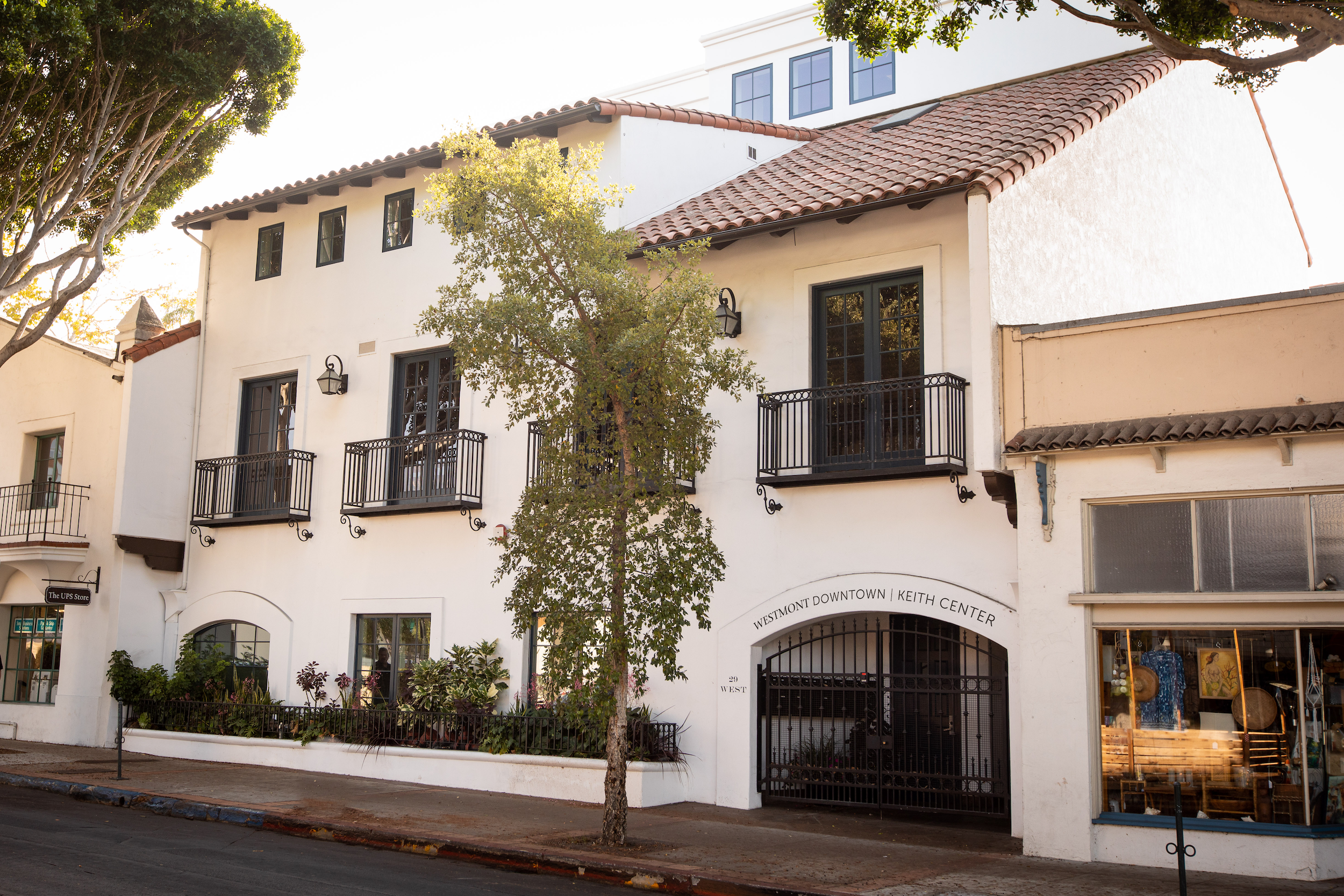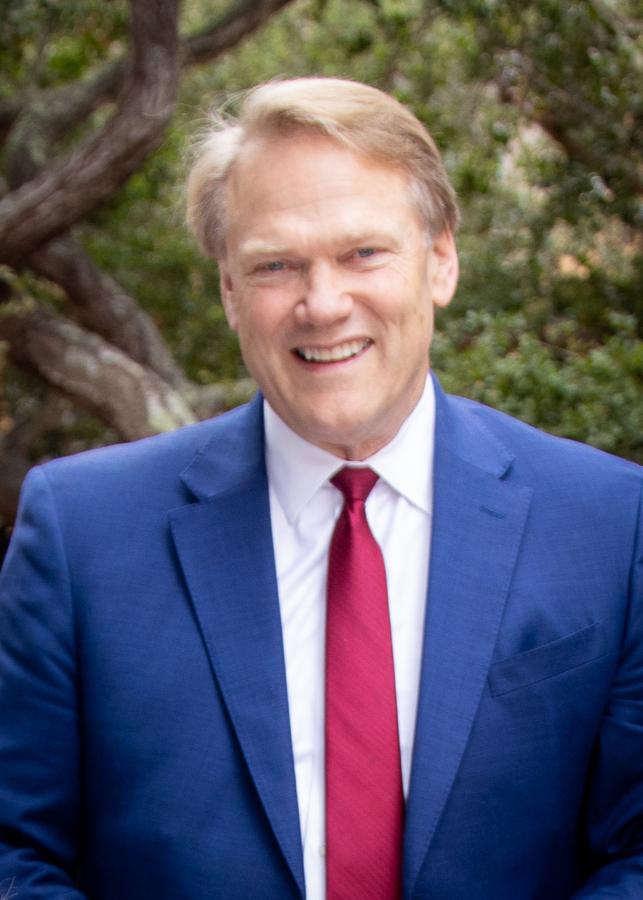COVER STORY
Honoring Our Heritage and Pursuing* an Aspiring Edge
by President Gayle D. Beebe, Ph.D.
I wake up each morning with the score at zero knowing I must do something that day to advance Westmont’s mission. Fully embracing the college’s commitment to our heritage as a Christian liberal arts institution, I chase the next horizon. What time-bound people, programs, facilities and innovations can help us carry out our timeless mission? How can we stay on the aspiring edge, stimulating hope and renewal? It’s the spirit of Westmont to seek to embody this transformational ideal.
Strategic planning guides our actions. Every three years, we develop a new, one-page strategic map, a grid outlining our priorities and activities with a 10-year horizon. It specifies what we need to do in the next three years to achieve our 10-year goals. We concentrate on issues we consider most important, with task forces tackling each one and reporting back to the strategic planning committee. These faculty and staff members determine how best to deploy human and financial resources to carry out our mission. Through this process, I’ve learned that we overestimate what we can achieve in one year but underestimate what we can accomplish in 10.
I’ve learned that we overestimate what we can achieve in five years but underestimate what we can accomplish in 10.
In addition, I set yearly goals for myself in 15 categories: implementing the strategic plan; working with the board; leading the executive team; supporting professors and the academic program; enhancing student life; engaging enrollment, marketing and communications; balancing finances; steering human resources; acquiring new financial and human resources; building internal and external relations; developing the property, plant and equipment; using technology appropriately; responding to opportunities and challenges; setting personal goals; and keeping an aspiring edge. Like institutions, individuals need to pursue an aspiring edge or we stall out.
I also summarize these categories in five areas of focus. The first, people, represents the enduring essence of our great college and community. As one of the top liberal arts colleges in the country, we offer best-in-class programs. We also attend to our property, plant and equipment to care for our state-of-the art facilities and beautiful grounds. Every enduring contribution requires capital, so we work on resource acquisition. Finally, the relentless pursuit of excellence in people and programs keeps us on the aspiring edge.
In 2013, we welcomed Henry Kissinger to Westmont at a special luncheon, and I was privileged to interview and engage him in one of the most fascinating conversations I’ve ever had. I asked him which effective presidents and international leaders he admired. He replied that leaders typically find themselves overwhelmed with urgent situations they must address. “If you read the letters of Theodore Roosevelt, those were people with knowledge of history who could write their own letters, and that permitted them to have a substantial view of the future,” he said. “The task of a leader is to have a vision for the future and to motivate his subordinates to do things they didn’t know they could do — and not to be overwhelmed by all the tactical considerations of the moment.” Noting that leaders today often find it difficult to ask for sacrifices, he said, “But without sacrifices to build the future, you just consume yourselves.”

We’re committed to honoring the past, effectively managing the present and appropriately mapping the future — all while maintaining an aspiring edge.
In 2022, Kissinger expanded his views about leaders in his book “Leadership: Six Studies in World Strategy.” He examined the strategies of six great 20th-century figures and developed a unifying theory of leadership and diplomacy. His subjects worked with inherited opportunities and problems. What Kissinger noted was as they solved current problems, they created new ones. That’s the nature of politics and really all of life. Resolving challenges leads to new ones emerging after brief, quiet interludes. Kissinger demonstrated in his book that leaders must focus on more than just innovation. We pursue innovative growth at Westmont, but we also need institutional stability to continue our mission.
Former secretary of state Condoleezza Rice returned to Westmont this semester to speak at her second President’s Breakfast. She discussed the dual nature of democracy, which has the capacity to innovate, adjust and change as well as the ability to establish institutions that sustain and support human flourishing. In this way, eternal ideas get bound in time and carried out through institutions.

How can we make progress at Westmont in a time of turmoil in higher education and the world? We’re driving innovation by establishing new certificate and post- secondary programs and adding majors such as engineering and data analytics.
We’re also expanding allied health programs to build on the success of Westmont | Grotenhuis Nursing. Our Accelerated Bachelor of Science in Nursing program has now added a third cohort with all three running at the same time. When one graduates, another begins. Cottage Hospital expresses deep appreciation for their partnership with us, and their involvement and scholarships have supercharged this opportunity.
With the gift of the Keith Center across Anapamu Street from the nursing program, we’re exploring what opportunities align with our mission and Christian intellectual tradition and how the new facility can support them. We’re especially mindful of the way the healing arts, like nursing, complement the liberal arts. Christians have traditionally established hospitals and provided care because of our commitment to value the image of God in every single person.
Westmont created the Martin Institute for Christianity and Culture as part of our plan to develop an institute for every plank of the mission statement. We seek to generate resources to help people develop faith and build understanding and maturity in following Christ. The institute’s work not only benefits the Westmont community but provides an opportunity to shape and participate in public conversations about spiritual formation. We have something to say about how Christians can live in and contribute to the betterment of society. We’re renovating facilities so the Martin Institute can better achieve its goals.
You can read more about our plans in this issue. I’m excited about innovation that allows us to grow and develop in a way consistent with our mission and heritage. We’re committed to honoring the past, effectively managing the present and appropriately mapping the future — all while maintaining an aspiring edge.